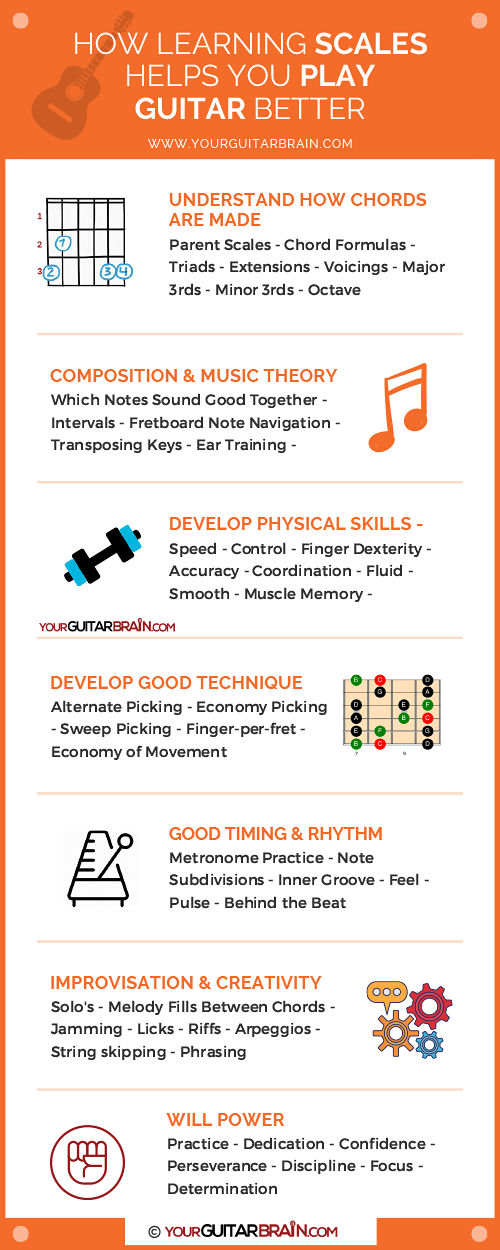Why are scales important to learn on guitar? Discover why practicing guitar scales has amazing benefits for beginners to advanced guitar players.
Guitar scales – why are they so important to learn?
Scales are important to learn on guitar for both beginner and advanced guitar players because they help you improve fast in all areas of playing the guitar.
From physical skills, such as increased finger strength and speed, to cognitive skills, like being able to find the notes on the fretboard quickly.
Scales really are the guitarist’s secret weapon to fast improvement.
Whether you’re a beginner or an experienced guitar player, learning a few scales will help you see impressive progression at your ability to play the guitar properly.
Check out the guitar infographic below showing you the importance of guitar scales.
What Are Scales?
A scale is a sequence of musical notes that are arranged in a particular order. These patterns are arranged in order of musical pitches known as intervals.
Some of the most used scales guitar players should learn include the minor pentatonic scale, major scale, natural minor scale and major pentatonic scale.

How learning scales helps you play the guitar better
Understand How Chords Are Made
Parent Scales – Chord Formulas – Triads – Extensions – Voicings – Major 3rds – Minor 3rds – Octave.
Composition & Music Theory
Which Notes Sound Good Together – Intervals – Fretboard Note Navigation – Transposing Keys – Ear Training –
Develop Physical Skills
Alternate Picking – Economy Picking – Sweep Picking – Finger-per-fret – Economy of Movement
Good Timing & Rhythm
Metronome Practice – Note Subdivisions – Inner Groove – Feel – Pulse – Behind the Beat
Improvisation & Creativity
Solo’s – Melody Fills Between Chords – Jamming – Licks – Riffs – Arpeggios – String skipping – Phrasing
Will Power
Practice – Dedication – Confidence – Perseverance – Discipline – Focus -Determination







